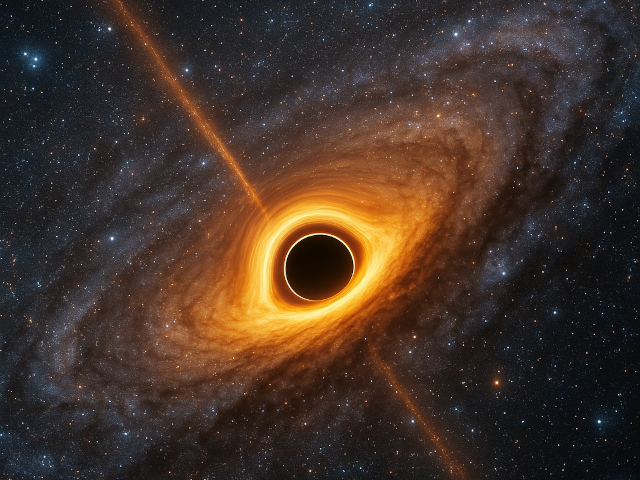子どものころから、天体や宇宙、物理に強い憧れがありました。ブラックホール、ダークマター、ダークエネルギー・・・・そういうタイトルのついた動画があるとついつい見入ってしまいます。
専門家と胸を張れるほどの知識があるわけではありませんが、空を見上げれば心が動く——その気持ちは今も変わりません。お年玉を貯めて初めて天体望遠鏡を手に入れた日のことは、今でも鮮やかです。買ってすぐ祖母の家に持っていき、月面を覗いてもらいました。クレーターがくっきり見えることに目を丸くする祖母の横顔を見て、なぜだか自分まで誇らしい気持ちになりました。知識の多寡を超えて、「見える」「わかる」という体験には、人を前へと押し出す力があるのだと思います。
もちろん、私は科学者ではありません。最先端の論文をすらすら読み解けるわけでもない、いわば「科学好きの素人」です。それでも、科学の核心は「態度」にある——そう考えています。仮説を立て、試し、観察し、記録し、次につなげる。この一連の姿勢は、モノづくりにこそ直結します。難解な専門用語を並べることよりも、手を動かし、確かめ、学びを重ねることが大切です。
ここで一つ、はっきり伝えたいことがあります。「科学」と聞いて難しそうだと身構えて、遠ざけてしまうのはやめよう。 科学は特別な人の専用席ではありません。最初は「わからない」から始まってよいし、小さな試行錯誤を重ねるうちに「わかった」に近づいていきます。日常の中でも、やり方を少し変えて結果を見比べるたび、私たちは無意識に小さな科学をやっているのです。
では、失敗したとき、あなたはどうしますか。
モノづくり塾では「早く失敗すること」「たくさん失敗すること」を勧めています。といっても、無鉄砲に突っ込めという意味ではありません。大切なのは——ちゃんとやって失敗すること。準備をし、筋道を立て、誠実に取り組んだうえでの失敗には、必ず意味があります。どこまでうまくいったのか、どこでつまずいたのか。その手がかりは次の一歩を確かなものにします。だから私はこう言いたい——失敗はプラス。負けではなく、勝ちへの材料。
ここでよく言われるのが、「学校教育は年限が限られていて、同じ課題で何度も失敗させる余裕がない」という指摘です。だからこそ私は、意図的に“失敗の回数”を確保できる場としてモノづくり塾を開いています。 学年進行や一律カリキュラムの枠から離れ、安全を確保したうえで、小さく試し、小さく壊し、振り返って作り直す——この循環を何度でも回せるようにする。学校では取りこぼされがちな「自分の手でつまずき、原因を見つけ、やり直してできるようになる」という体験を補うのが、塾の役割だと考えています。
もう一つは「大人が先回りして助けたほうが子どもは傷つかない」という考えです。もちろん安全は最優先で守られるべきです。ただ、過度な先回りは、子どもから「自分で乗り越えた」という手応えを奪います。小さな失敗を安全な範囲で経験し、原因を振り返り、次に生かす——この循環が自己効力感を育てます。傷つくことから守るのと、つまずく機会を奪うことは違う。 見守りながら必要最小限の支援にとどめることで、子どもは自分の足で立つ感覚を身につけます。
結局のところ——難しそうだと敬遠しないこと。失敗は勝ちの種であること。勝ちを重ねるとは諦めないこと。 専門家でなくても、最先端をすべて理解していなくても、この姿勢は今日から実践できます。「わかった!」が生まれる瞬間を丁寧に拾い集めていく。その連続が、静かで確かな前進になります。
Since childhood, I have had a deep fascination with astronomy, the cosmos, and physics. Black holes, dark matter, dark energy… whenever I come across a video with such a title, I can’t help but watch it intently.
I don’t possess enough knowledge to proudly call myself an expert, but the feeling of being moved when I look up at the sky remains unchanged. I still vividly remember the day I first bought a telescope with money I had saved from New Year’s gifts. I immediately brought it to my grandmother’s house and had her look at the surface of the moon. Watching her eyes widen at the sight of clearly defined craters somehow filled me with pride. Beyond the amount of knowledge one has, I believe the experience of “seeing” and “understanding” has the power to propel people forward.
Of course, I am not a scientist. I can’t effortlessly read cutting-edge research papers; I am, in other words, an “amateur who loves science.” Even so, I believe the core of science lies in attitude. Formulating a hypothesis, testing it, observing, recording, and connecting it to the next step—this entire stance directly connects to craftsmanship. Rather than stringing together complicated technical terms, it is more important to work with your hands, test, and build upon what you learn.
There is one thing I want to say clearly here: Don’t back away from science just because it sounds difficult. Science is not a reserved seat for special people. It’s perfectly fine to start from “I don’t understand.” Through small, repeated trials and errors, you move closer to “I get it.” Even in daily life, every time we change a method slightly and compare results, we are unconsciously engaging in small acts of science.
So, what do you do when you fail?
At the Makers’ School, we encourage “failing early” and “failing often.” That doesn’t mean recklessly diving in. What matters is failing properly. Preparing well, thinking logically, and working sincerely—failure that comes after such effort always carries meaning. How far did you succeed? Where did you stumble? These clues make the next step more solid. That’s why I want to say this: failure is a plus. It is not defeat, but the raw material for victory.
A common objection is: “School education has limited years, and there’s no room to let students fail over and over with the same task.” That’s precisely why I created the Makers’ School as a place where intentional opportunities to fail can be secured. Free from grade progression and uniform curricula, in a safe environment, students can test small, break small, reflect, and rebuild—repeating this cycle as many times as necessary. I believe the role of the school is to supplement the experiences often missed in formal education: stumbling with one’s own hands, finding the cause, redoing it, and succeeding.
Another common belief is that “if adults step in early to help, children won’t get hurt.” Of course, safety must always be the top priority. But excessive intervention robs children of the sense of “I overcame it myself.” Experiencing small failures within safe limits, reflecting on the cause, and applying it to the next attempt—this cycle cultivates self-efficacy. Protecting children from harm is not the same as depriving them of opportunities to stumble. By watching over them and limiting our support to the bare minimum necessary, children develop the sense of standing on their own two feet.
In the end—don’t avoid something just because it looks difficult. Remember that failure is the seed of success. To accumulate victories means not giving up. Even if you’re not an expert, even if you don’t understand everything at the cutting edge, this stance is something you can practice starting today. Carefully collecting those small moments of “I got it!”—that accumulation becomes a quiet yet certain forward step.


「ZIKUUの活動と科学的態度」への1件のフィードバック